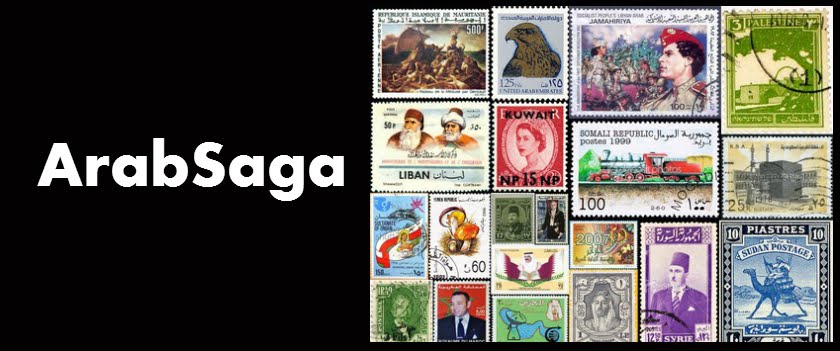 |
| Yassin al-Haj Saleh |
Yassin al-Haj Saleh,
52, is a prominent Syrian writer and political dissident. He served 16
years in prison – from 1980 to 1996 -- under President Bashar Assad’s father,
Hafez.
He was arrested while
studying medicine in Aleppo and took his final examination as a general medical
practitioner in 2000, but never practiced. He is
a recipient of the Prince Claus Award for
2012 as
“actually a tribute to the Syrian people and the Syrian Revolution.” He was not
able to collect the award.
Yassin
al-Haj Saleh stunned the Arab world October 12 by bidding his au revoir to
Syria on his Facebook page.
Here is what he said:
I did my utmost throughout the past
two-and-a-half years to stay in the country.
This was important to me (1) as a
writer wanting to live the conditions he wants to write about, and (2) as an
intellectual wishing to live amidst and like his people to try and take in
their circumstances.
I wanted to stay, not because I was
doing indispensable work, but because it was my native habitat – one that I
could not do without.
After spending half a century of my
life seeing Syria motionless, I want to see her evolving.
Staying put in the country also called
for great effort to avoid falling into the clutches of the criminal Assad
regime.
Some two years into the Revolution, I
had to leave Damascus where I lived a little more than 12 years -- the last two
of them underground.
I first moved to Ghouta before heading,
within 100 days, to ar-Raqqa, the city where I
spent my childhood and adolescence years and which is home to my brothers -- or
whoever is left of them.
The journey to ar-Raqqa was incredibly
daunting – not because it lasted 19 scorching summer days and was fraught with
danger. The phased journey was overwhelming because I was already monitoring
ar-Raqqa prior to setting out.
The city had fallen under the
occupation of a hostile foreign force – namely, the Islamic State of Iraq and the Levant, better known by its
Arabic acronym DAESH.
DAESH is a name that befits a ghoul in one of the
folktales we used to hear in our tender age.
A few days before leaving Ghouta, I
heard the ghoul had detained my brother Ahmad.
While still in Ruhaibeh, in the
Qalamoun area, I learned -- when establishing contact to ask after Ahmad – that
the ghoul had also abducted (my younger brother) Feras.
That exceeded all limits.
The trip to ar-Raqqa became meaningless,
but I couldn’t turn back.
I wished the intimidating journey would
end, sparing me the hardship that was alleviated by the company of two young
army deserters and a young photographer friend who was documenting parts of our
journey.
Concluding the odyssey was no more a
personal objective. There was no special joy in ending the Herculean task.
I spent two-and-a-half months underground
near ar-Raqqa, where I did not hear a word about Feras.
Nothing could have been worse.
Instead of being ecstatic in ar-Raqqa,
I found myself living underground in my “liberated” city two-and-a-half years
after the Revolution.
At the same time, strangers kept
ar-Raqqa and its population under their thumb, destroyed a modest statue of
caliph Harun al-Rashid,
desecrated a church, appropriated public property, rounded up human beings –
political activists specifically, rather than the regime’s shabiha and former
lackeys -- and melted them away in their dungeons.
In addition to aggression against human
beings, idols and objects, the new kid on the block (DAESH) doesn’t seem to
have any sense of responsible authority.
I wanted to stay in ar-Raqqa as long as
possible to understand the turn of events and form an opinion of Johnny-come-lately.
I learned useful things, but not as
much as I would have wanted because I was unable to walk the city streets and
hear people’s accounts first hand, let alone meet the so-called “emirs” and
“jihadists” of the Islamic State of Iraq and the Levant.
To avoid walking the streets of
ar-Raqqa in the fall was not the trigger of my au revoir.
In the early days of the Revolution, I
used to tell my friends humorously, “I want to bring down the regime to acquire
a passport.”
I longed for a passport in order to
feel free – travelling whenever I wanted.
Today, I leave behind friends who are
continuing the struggle. Our presence inside the country was a source of mutual
comfort and support.
I am not bitter.
I am slightly angry.
I realize how desperate our situation
is. But each time I thought I grasped something or shed light on something
else, I felt I scored a point against the beast (with multiple heads
and horns) wanting us to remain in the dark, mute and wanting nothing other
than what it wants.
What I dread most now is to be in the
dark outside Syria, failing to make sense of events at home.
I got the hang of Syria, my homeland.
I don’t exactly know what to do in
“exile.”
In the past, the word “exile” unnerved
me. It had the connotation of mocking those staying in the country.
The meaning of “exile” may change today
to embody the saga of our uprooting, asylum, dispersion and homecoming hopes.
I don’t know what I will be doing, but
I am part of this great Syrian exodus and the anticipated Syrian remigration.
Though Syria looks like a
slaughterhouse today, we have no other homeland.
I am also aware no country is more
merciful to us than this horrific country.
